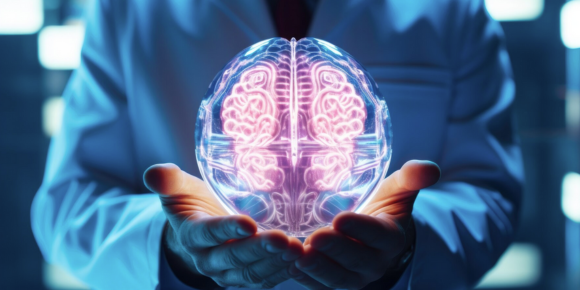7 evidence-based strategies for lifelong brain health

TL;DR
World Brain Day on July 22 provides a perfect opportunity to spotlight the incredible adaptability of our brains throughout life. Recent neuroscience confirms that even aging brains can form new neural connections when properly stimulated and cared for. By participating in this awareness campaign and implementing evidence-based brain health strategies, you can take proactive steps toward cognitive longevity and mental resilience.
Why This Matters
Brain health isn't just about preventing dementia or cognitive decline—it's about optimizing your most valuable asset for everyday performance, emotional regulation, and quality of life. While many assume cognitive decline is inevitable with age, contemporary neuroscience reveals that the brain remains remarkably plastic well into our later years. This neuroplasticity means we can actively influence our cognitive trajectory through lifestyle choices. World Brain Day creates an opportunity to understand these evidence-based approaches and integrate them into daily routines. For wellness-focused individuals, prioritizing brain health means enhancing mental performance now while building cognitive resilience for the future.
Key Facts About Brain Health
-
Neuroplasticity continues throughout life: Research confirms the brain can form new neural connections even in older adulthood, challenging outdated beliefs about inevitable cognitive decline
-
Multidimensional approach works best: Optimal brain health requires addressing multiple factors including nutrition, physical activity, sleep quality, stress management, and cognitive stimulation
-
Social connection matters: Strong social relationships are consistently associated with better cognitive outcomes and reduced dementia risk
-
Prevention is powerful: Many cognitive health interventions show greatest benefit when started early, before symptoms appear
The Science of Brain Health
Current neuroscience has revolutionized our understanding of brain aging. The discovery that adult brains can generate new neurons (neurogenesis) and form new connections (neuroplasticity) throughout life has profound implications for cognitive wellness strategies.
Research shows that the brain responds positively to:
- Novel challenges: Learning new skills creates and strengthens neural pathways
- Physical exercise: Regular movement increases blood flow to the brain and stimulates growth factors that support neural health
- Nutritional support: Mediterranean and MIND diet patterns have demonstrated neuroprotective effects
- Quality sleep: During deep sleep, the brain's glymphatic system clears metabolic waste that can contribute to neurodegeneration
These findings explain why comprehensive brain health approaches show more promise than single-intervention strategies.
What You Can Do
Spread Awareness
- Share your brain health journey on social media with the hashtag #BrainHealth
- Link to BrainHealthAction.org in your posts to help others access evidence-based resources
- Use the downloadable image provided by AARP to increase engagement
Implement Brain-Healthy Habits
-
Cognitive stimulation: Challenge your brain daily with new learning experiences—whether languages, musical instruments, or creative pursuits
-
Physical activity: Aim for 150 minutes of moderate exercise weekly, with both aerobic and resistance training components
-
Nutritional optimization: Emphasize:
- Omega-3 fatty acids (fatty fish, walnuts, flaxseeds)
- Antioxidant-rich foods (berries, dark leafy greens)
- Adequate hydration
- Limited processed foods and added sugars
-
Sleep prioritization: Create consistent sleep routines and environments that support 7-8 hours of quality rest
-
Stress management: Incorporate mindfulness practices, deep breathing, or meditation to reduce cortisol's negative effects on brain structure
-
Social engagement: Maintain meaningful relationships and regular social interaction
Brain Supplementation Considerations
While a food-first approach is foundational, certain supplements show promise for cognitive support:
- Omega-3 fatty acids: When dietary intake is insufficient
- B vitamins: Particularly B12, folate, and B6 for homocysteine management
- Vitamin D: Especially for those with limited sun exposure or deficiency
- Specialized compounds: Some evidence supports curcumin, resveratrol, and certain mushroom extracts for neuroprotection
Always consult healthcare providers before starting supplements, as individual needs vary and quality matters significantly.
The Longevity Connection
Brain health and longevity are intimately connected. Cognitive resilience contributes to:
- Maintained independence and quality of life
- Better management of chronic health conditions
- Reduced fall risk through preserved executive function
- Greater life satisfaction and psychological well-being
By prioritizing brain health, you're simultaneously addressing many factors that influence overall longevity and healthspan.
What to Watch
The field of brain health is rapidly evolving. Stay informed about:
- Emerging digital tools for cognitive assessment and training
- Advances in understanding gut-brain connections
- Development of more sensitive biomarkers for early intervention
- Personalized approaches based on genetic and lifestyle factors
- Integration of brain health into primary healthcare
The Bottom Line
Your brain's remarkable capacity for growth and adaptation continues throughout life. World Brain Day offers a timely reminder that evidence-based strategies can significantly impact cognitive trajectories. By combining awareness with action—optimizing nutrition, physical activity, sleep, stress management, and cognitive stimulation—you can support your brain's health now while building resilience for the future. Start with small, consistent changes and remember that brain health is a lifelong journey, not a destination.



